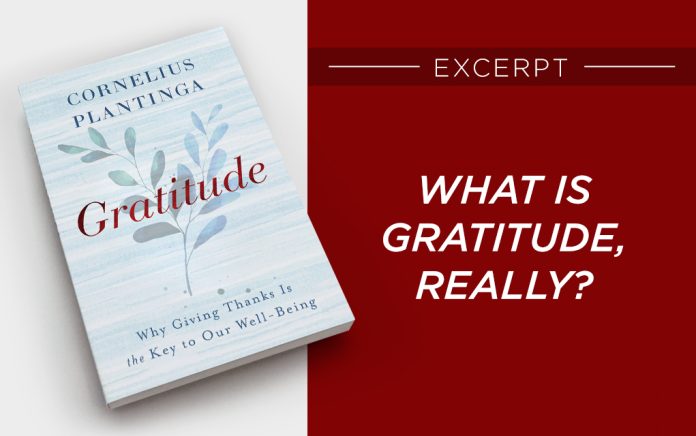The question of “What Is Gratitude?” is explored in a remarkable CBS news segment featuring a Chicago high school and its resilient students.
At Johnson College Prep, the majority of the student body is African American, with many coming from low-income households and navigating daily challenges to reach the classroom. Despite these obstacles, the school is aptly named, as these students are determined to attend college. Many JCP students are exceptionally bright and well-qualified for higher education.
However, financial barriers remain a significant hurdle. Even with scholarships, many students cannot bridge the gap between their financial aid and the total cost of attendance. Furthermore, because scholarship packages often include loans, many risk being burdened with intolerable debt before their careers even begin.
So, as the students sat in assembly on that February day, they needed a miracle.
They got one. In fact, they got the shock of their lives. A millionaire businessman by the name of Pete Kadens walked on stage and greeted the students. Kadens is cofounder and former CEO of Green Thumb Industries, and he had a surprise for the students. He told them they would walk out of the assembly “forever changed.” The reason, he said, was that he was going to pay for their college tuition, their room and board, and all their books and expenses. Gathering himself, Pete Kadens said, “You are going to college for free.”
Joy erupted. Students leaped to their feet. They whistled and shouted and hugged and danced. Free! Could it be? Already overwhelmed, the students heard more. Pete Kadens was also providing a full-ride scholarship for a parent or guardian from each student’s family!
CBS was there to record the event. One shell-shocked student, Kavarrion Newson, said that he had always trusted God to come through for him. Now, he said, you can bet that “God will get some special time from me tonight.”
In the larger context of poverty in America, we might wish that 60 Minutes had instead told of a successful crusade for justice in employment, wages, and housing in South Side Chicago. Then maybe the students at JCP wouldn’t have needed Pete Kadens to swoop in with his miracle. Fair enough. But this thought cannot erase the plain fact that one winter day in Chicago, grateful high school students received news of a gift that would dramatically change their lives.
Gratitude, a Definition
After reading about the story of “Hope Chicago,” do we even need a definition of gratitude? Maybe not, but here’s an easy one: gratitude is whatever the students at Johnson College Prep experienced on February 24, 2022.
Let’s add a more formal one: gratitude is a glad sense of being gifted with something by someone and thus being indebted to the giver. As we all know, this glad sense is often accompanied by at least a small rush of warm feeling toward the giver.
That’s gratitude. It’s a mixed sense of being blessed by and therefore indebted to a giver, usually accompanied by warm feelings toward that giver. Usually, but not always. If little Noah’s mom tells him to say thank you, he might at some three-year-old level know that his mom just handed him a toy and be glad she did, but he might not feel any warmth toward her on that account.
Similarly, in a devout moment I might sincerely thank God for my good health—my thanks signaling that I know my health is a gift and that I owe God for it. I might feel an upsurge of warmth toward God—or not. (Maybe I just found out that a recent health scare was a false alarm.) The warmth is a welcome add-on. If I don’t feel that warmth, I still have real gratitude.
Gratitude is not just a periodic sense of being blessed and indebted. Grateful people are inclined to feel gratitude most of the time. They have, so to speak, a light trigger for feeling like this. We could say they have a grateful disposition. If it remains stable over time, this disposition may be called a character trait. It’s in character for a person with this trait to respond to good things with a sense of being blessed and indebted. Of course, we call a morally good character trait a virtue. Gratitude belongs in any list of splendid virtues—along with, say, compassion, kindness, patience, forgivingness, and generosity.
There’s a big difference between occasionally feeling grateful and having a grateful disposition. In a seminar on gratitude at Calvin University in July 2017, psychologist Charlotte vanOyen-Witvliet explained to participants that people with a grateful disposition possess especially four tendencies:
- feeling grateful with higher intensity than others
- experiencing gratitude with greater frequency
- being grateful for a wider array of good things
- experiencing gratitude with greater density—that is, having a thicker group of people to whom they are grateful
Philosopher Robert Roberts succinctly expresses the “framework” of what prompts gratitude: a benefactor provides a benefit to a beneficiary. Three B’s. In this small drama, the beneficiary is aware of being blessed by and indebted to the benefactor for a benefit and so thanks the benefactor in some appropriate way.
Content taken from Gratitude by Cornelius Plantinga, ©2024. Used by permission of Brazos Press.

